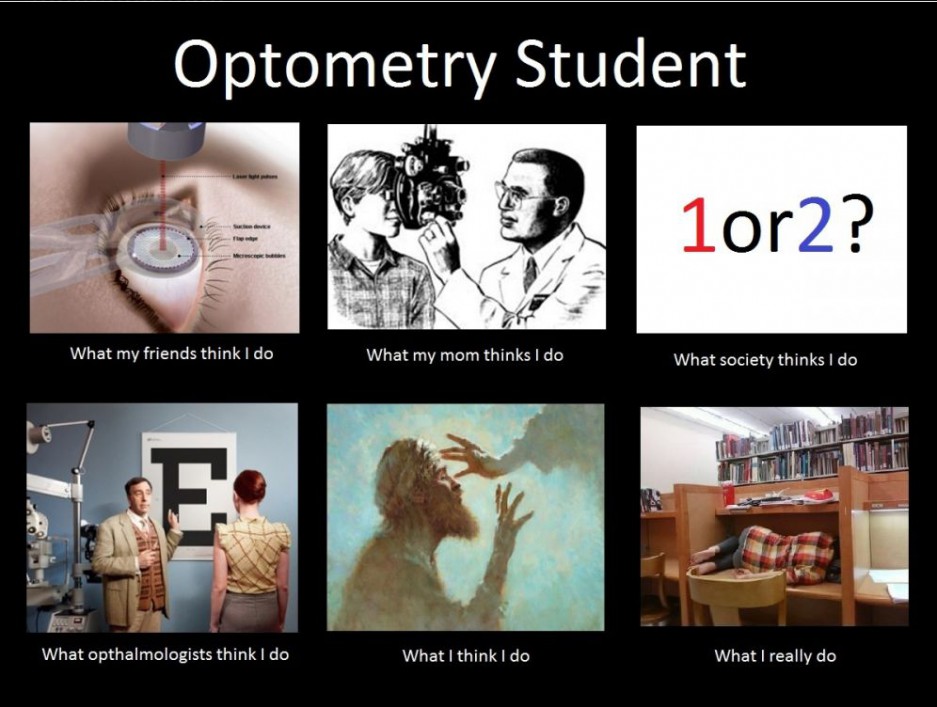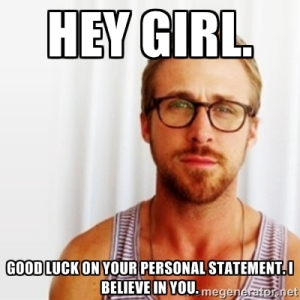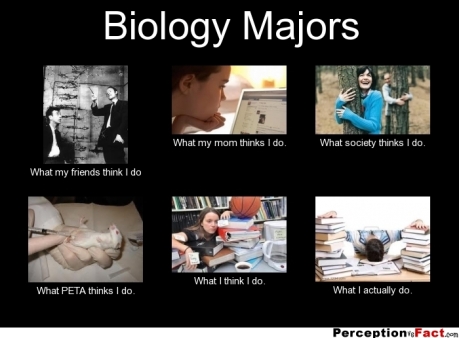Well, I haven’t really posted much in a very long time. I have been working on putting some stuff together for a mock interview day that we are going to be having with our Pre-Optometry Club after Spring Break, so I thought I would put it up here for anyone who is interested. Most of the questions just came from various websites, but some I remember them asking in my own interview. I also put some tips at the end to hopefully help some people out. Good luck to any of you who will be starting the exciting process of getting into optometry school soon! I know that with the semester’s end coming up much faster than most of us planned, the daunting OAT is coming up fast for some of you!

Mock Interview Sample Questions
- What got you interested in optometry?
- What is your overall goal with optometry?
- How did you prepare for the OAT?
- How do you connect with the mission statement of our school?
- What is something you have learned during your time at Missouri State?
- Why do you want to be an optometrist?
- Tell me about yourself.
- What are some of your strengths?
- What are some areas you would like to improve on?
- How do you handle conflict?
- Tell me about some of your volunteer experiences. What would you say impacted you the most?
- Tell me about some of your extra-curricular involvement.
- What are some of you hobbies/stress-relievers?
- Who is the most influential person in your life?
- What course did you find to be the most challenging in your undergraduate career?
- What do you think being an optometrist entails, outside of just seeing patients?
- What makes a good optometrist?
- What optometry procedures have you seen in your shadowing experience?
- What did you like/dislike about some of the places that you shadowed?
- What kind of learning style do you have and how can you use that to be successful in optometry school?
- What do you think is the most pressing issue in optometry today?
- What are the responsibilities of an optometrist to his or her patients?
- What do you think of the current state of healthcare in the United States?
Tips for a Successful Interview
- Do your research. Look at any material you have from the school, check out their website, and talk to anyone you might know who goes there. This will help you get a feel for the school, as well as give you some things to talk about when they ask you why you want to go there. See what classes are going to interest you in their curriculum so that you can talk about that if they ask. If you can get any information on the people you will be interviewing with that can be helpful too because it will help you connect with them.
- Look over sample questions and think about how you would answer them in advance. Don’t try to wing the interview because this is the time when the school gets a real first impression of you. An optometrist doesn’t just need to be smart, they need to be personable as well.
- Dress appropriately. Guys usually wear suits or at least slacks and a tie. Girls should wear something modest and professional.
- Be yourself. It’s normal to have anxiety, but try not to stress out so much that you aren’t able to share your real personality with the interviewers. They want to see that you are going to be a pleasant student and that you are going to fit in well with their staff and student body.
- Make sure you have some questions to ask the interviewers as well. They will most likely give you a few minutes at the end to ask them any questions that you might have. This could be really awkward if you don’t have anything to ask. This is where knowing a little bit about the school and interviewers can really come in handy. Maybe you saw a certain class or organization that you are interested and can ask how to get involved with it. Maybe there’s another school you’re looking into that offers something not advertised by this school and you want to know if they have it too. Even if it’s just a little question, it shows the interviewers that you have done your research and really are interested in their school.
6. Follow up. Whether it’s sending a thank you card to your interviewers for the opportunity, or just emailing someone who works in student services, make sure they remember who you are and know that you are still interested in the school after the tour/interview experience.
Also, here’s a handy notes form I found that you can use to think of some of your own questions for the interviewers: Interview notes form








